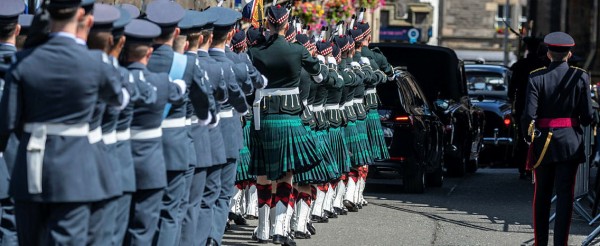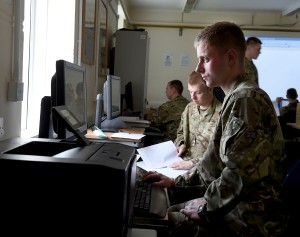Section 1 – Veterans and Finance: Financial Landscape
Policy, Research and Operational Context
Veterans are a diverse and varied group and, consequently, their financial circumstances are not homogenous. It is important to recognise that most veterans lead successful and financially secure lives beyond Service. Many pursue fulfilling second careers, often utilising the extensive skills they gained in their military roles. Military families are resilient and adaptable and enhance the civilian community with their unique experiences.
For some however, the transition to civilian life is more challenging. Some factors which can influence post-Service financial stability include; injury or illness in Service, length of Service, relationship stability or breakdown, financial acuity and understanding, awareness of or access to support services, and engagement with transition provision.
There is a wide range of statutory and third sector support available to the veteran community. In recognition of their Service to the nation, veterans facing financial hardship can access a unique safety net of charitable organisations and diverse support services, designed to help them navigate the often complex civilian financial landscape.
However, there is evidence that veterans do not always use the support available. This may be due to cultural reasons such as a reluctance to admit they need help, or because there is confusion over how to access appropriate support that meets their needs. Many providers work collaboratively to refer or connect veterans to the most appropriate services to address their needs and achieve the best possible outcomes, although the process is not always as seamless or efficient as intended.
The Armed Forces Covenant Fund Trust is currently funding project MONARCH which builds on previous work known as the Map of Need. This work is collating and investigating a range of health and social care data to inform a better understanding of veterans’ specialised needs. The intention is for the data from this study to be used to better inform veteran policy and practice across charities, local and national government, and the NHS. The evidence based findings for Scotland include maps of financial hardship.
The key findings from a linked study into the distribution of financial hardship in Scotland’s veteran community were that:
- Between 2014 and 2019, nearly a third of all Soldier, Sailor, Air Force Association (SSAFA) benefit was granted to provide accommodation or establish a safe living environment.
- Nearly a fifth of SSAFA benefit payments were granted to support daily subsistence.
- SSAFA beneficiaries were not homogeneously distributed but were in highly concentrated clusters.
- SSAFA beneficiaries were statistically clustered into areas of high deprivation, experiencing similar challenges to that of the wider population in these areas.
- There was a strong correlation between SSAFA beneficiaries and recipients of the War Pension Scheme.

An Overview of Provision
Within the UK Ministry of Defence (MoD) the Veterans Welfare Service (VWS) provides professional help and advice to veterans, their families and dependants, as well as those supporting veterans. In addition, Defence Transition Services (DTS) is in place to support veterans (and their families) who may face the biggest challenges.
There are a range of charities and partnerships operating in Scotland who contribute to the landscape of advice, support and benevolence for the veteran community. While it would not be possible to list them all, these include many Service related charities who distribute or facilitate grants. Some of these are set out below.
-200.png) SSAFA Scotland: Offers support to Service personnel, veterans, and their families. As well as providing goods and services to beneficiaries, SSAFA Caseworkers will refer as appropriate to qualified financial planning advisors to help beneficiaries manage personal income, expenditure and debt. SSAFA will not provide direct financial management or debt advice to its beneficiaries.
SSAFA Scotland: Offers support to Service personnel, veterans, and their families. As well as providing goods and services to beneficiaries, SSAFA Caseworkers will refer as appropriate to qualified financial planning advisors to help beneficiaries manage personal income, expenditure and debt. SSAFA will not provide direct financial management or debt advice to its beneficiaries.
-200.png) Poppyscotland: Supports the Armed Forces community in Scotland and delivers a wide range of services, including financial assistance and guidance, and advocating for policy changes that improve benefits, compensation, and overall welfare.
Poppyscotland: Supports the Armed Forces community in Scotland and delivers a wide range of services, including financial assistance and guidance, and advocating for policy changes that improve benefits, compensation, and overall welfare.
-200.png) Forces Children Scotland (FCS): Provides financial assistance to children and young people of Scottish Armed Forces personnel and veterans, supporting education, young carers, and those facing financial crises.
Forces Children Scotland (FCS): Provides financial assistance to children and young people of Scottish Armed Forces personnel and veterans, supporting education, young carers, and those facing financial crises.
-200.png) Army Benevolent Fund (ABF): Awards individual grants to support soldiers, veterans, and their immediate families in times of need, addressing issues such as housing, elderly care and mobility assistance, mental wellbeing, training, education and support into employment, and help with priority debt relief. The ABF funds other organisations that deliver specialist services, support, and advice to the Army family.
Army Benevolent Fund (ABF): Awards individual grants to support soldiers, veterans, and their immediate families in times of need, addressing issues such as housing, elderly care and mobility assistance, mental wellbeing, training, education and support into employment, and help with priority debt relief. The ABF funds other organisations that deliver specialist services, support, and advice to the Army family.
-200.png) Royal Navy Royal Marines Charity (RNRMC): Provides grants to organisations, ships, bases and units to support serving and former naval personnel and their families. It offers mental health and wellbeing programmes, support for bereaved families, and funding for partner charities delivering financial support.
Royal Navy Royal Marines Charity (RNRMC): Provides grants to organisations, ships, bases and units to support serving and former naval personnel and their families. It offers mental health and wellbeing programmes, support for bereaved families, and funding for partner charities delivering financial support.
-200.png) Royal Marines Association – The Royal Marines Charity (RMA-TRMC): Provides support, advice and lifelong camaraderie to serving and retired Royal Marines and their eligible family. This includes financial grants, addiction and mental health support, employment and transition support and AFCS/War Pension advice and guidance.
Royal Marines Association – The Royal Marines Charity (RMA-TRMC): Provides support, advice and lifelong camaraderie to serving and retired Royal Marines and their eligible family. This includes financial grants, addiction and mental health support, employment and transition support and AFCS/War Pension advice and guidance.
-200.png) RAF Benevolent Fund (RAFBF): Supports RAF veterans, serving RAF Personnel, and their families with welfare grants, benefits advice, debt management support, emergency funding and housing adaptations. Has dedicated caseworkers and partnerships in Scotland to reach those in need.
RAF Benevolent Fund (RAFBF): Supports RAF veterans, serving RAF Personnel, and their families with welfare grants, benefits advice, debt management support, emergency funding and housing adaptations. Has dedicated caseworkers and partnerships in Scotland to reach those in need.
-200.png) The Royal Navy Benevolent Trust (The RNBT): Supports serving and former serving Royal Navy and Royal Marines personnel (excluding Officers) and their families. Provides grants for essential household items, housing arrears, utilities, mobility and care needs.
The Royal Navy Benevolent Trust (The RNBT): Supports serving and former serving Royal Navy and Royal Marines personnel (excluding Officers) and their families. Provides grants for essential household items, housing arrears, utilities, mobility and care needs.
-200.png) Blesma, The Limbless Veterans: Exists to help all serving and ex-Service men and women who have lost limbs, or lost the use of limbs, or eyes, to rebuild and live independent and fulfilling lives, whether as a consequence of Service or not. Support through life includes rehabilitation activities, financial support through grants and benefits advice, advocacy including wider engagement with health and social care providers, and welfare support.
Blesma, The Limbless Veterans: Exists to help all serving and ex-Service men and women who have lost limbs, or lost the use of limbs, or eyes, to rebuild and live independent and fulfilling lives, whether as a consequence of Service or not. Support through life includes rehabilitation activities, financial support through grants and benefits advice, advocacy including wider engagement with health and social care providers, and welfare support.
-200.png) Help for Heroes: Offers individual grants to support the recovery journey and welfare of veterans and families. This also includes, but is not limited to, cost of living grants for immediate needs such as heating and food.
Help for Heroes: Offers individual grants to support the recovery journey and welfare of veterans and families. This also includes, but is not limited to, cost of living grants for immediate needs such as heating and food.
-200.png) Sight Scotland Veterans: provides a dedicated Financial Wellbeing service for veterans living with visual impairment.
Sight Scotland Veterans: provides a dedicated Financial Wellbeing service for veterans living with visual impairment.
It would not be possible to list here the huge range of organisations who support veterans across Scotland. These organisations – large and small - all contribute to a very special and unique landscape of advice, support and comradeship for our veteran community. Importantly, many services offer financial inclusion and income maximisation as part of a holistic support approach. Alleviating money worries can lead to wider benefits, including improved mental health and more sustainable tenancies. In addition, veterans can also access support from organisations that serve the whole population, such as Citizens Advice Scotland and StepChange. That support can and will be in a range of locations (including online) and take a variety of forms.
Many organisations act as co-ordinators, facilitating access and referral to statutory and other third sector partners. That support might include making connections with other specialist organisations in areas such as debt advice or benefits, help to fill in forms and submit financial claims and applications, and helping veterans and their families to navigate complex systems and processes.
Most of the charities (including the range of benevolent funds) who support veterans across Scotland have members of the veteran community as employees or volunteers. These volunteers and staff members understand the armed forces and what it means to have Served, and this can be hugely valuable in building trust and relationships with veterans who need help but may be reluctant to ask for or accept it.
Financial Literacy

Life skills is a term used to describe a set of basic skills acquired through learning and/or direct life experience that enable individuals and groups to cope effectively with the problems and issues commonly encountered in daily life. Having the knowledge, skills and behaviours to manage and take informed decisions regarding money is considered a life skill.
In a military context, ‘Life Skills’ is the through-career offer of information, advice and guidance to help Serving Personnel and families to develop the knowledge and skills required to successfully navigate their way through life.
The UK Veterans Family Study published in 2023 noted that ‘Families reported issues with managing finances during Service which continued into post-Service life due to poor financial literacy. Financial issues were particularly pertinent when veterans were discharged unexpectedly, either for medical, administrative, disciplinary, or other reasons, as there often wasn’t time to plan or manage post Service employment.’ The report recommended:
- Improved financial literacy of military personnel and families - Given the impact of financial difficulties on the psychological health and wellbeing of veteran families and narratives of financial problems in the interviews, MoD should review its preparation of personnel and support for families in issues of financial management during and before leaving Service.
- Implementation of financial guidance, training, and support for veterans and their families - Given the already established links between financial status and health and wellbeing outcomes, additional focus on financial guidance, training, and support for veterans and their families should be implemented in current in-Service training and transition services. This should include increased awareness of current supports, such as The Royal British Legion’s Benefits, Debt, and Money Advice services and crisis grants, and other supports provide by charities in the sector.
Also published in 2023, a QuinetiQ and Cranfield School of Management report ‘Life Skills in the Armed Forces: Supporting the Military Community’ found that there are groups within the Serving community in need of enhanced support, tailored to their needs. The report recommended:
- Adoption of a single definition of Life Skills across the UK military
- Adopting a risk based model to understand who is most likely to need Life Skills support
- Directing that support more effectively
- Providing more explicit instruction, for example taking a more practical or classroom based approach for those most in need (who may also be least likely to ask for help)
The UK Armed Forces, in the Defence Holistic Transition Policy (Joint Service Publication (JSP) 100 Part 1 and Part 2 V2.0 November 2022), includes finance (including pensions, debt management, and budgeting) as one of the key pillars of transition.
 JSP 100 provides direction and guidance to ensure the availability of ‘Life Skills’ during an armed forces career covering ‘civilian’ and ‘life’ issues (such as budgeting, debt management, housing, health, civilian agencies, individual responsibilities to plan and prepare). One of the aims of this policy is to ensure that Life Skills are developed throughout a Service person’s career in order to prepare for the transition to civilian life, rather than being considered mainly at the end of an armed forces career.
JSP 100 provides direction and guidance to ensure the availability of ‘Life Skills’ during an armed forces career covering ‘civilian’ and ‘life’ issues (such as budgeting, debt management, housing, health, civilian agencies, individual responsibilities to plan and prepare). One of the aims of this policy is to ensure that Life Skills are developed throughout a Service person’s career in order to prepare for the transition to civilian life, rather than being considered mainly at the end of an armed forces career.
The Forces Pensions Society (FPS) is an independent membership organisation that acts as a pension watchdog for the military community. As well as providing members of the Armed Forces Pension Schemes and their partners with personalised pension guidance, and collaborating with the UK Government on pension matters, they provide educational support to members. They report that every year some 2,000 deferred Armed Forces pensions go unclaimed and the sums involved can be significant. The latest MoD report states at least 14,800 pension benefits remain unclaimed, down from 17,100 in 2023.
Testimony to the Commissioner
 I heard about the range of financial pressures that face veterans. Many of these are similar to the rest of the population and linked to rising costs, for example mortgages and rent, utilities and other household running costs, transport, and childcare.
I heard about the range of financial pressures that face veterans. Many of these are similar to the rest of the population and linked to rising costs, for example mortgages and rent, utilities and other household running costs, transport, and childcare.
Some of the funding provided by the third sector to support veterans may be relatively modest, for example to buy household items such as white and brown goods (refrigerators, freezers, washing machines and televisions etc), clothing, and food. It may also cover costs for training or qualifications, enabling access to more employment opportunities. Even very small grants can make a significant difference to the quality of life of a veteran or their family. I did, however, also hear of occasions where more significant grants were required to make a positive impact.
Debt – and the consequences of not being able to make payments – was a real concern for many of the veteran support organisations I spoke to. Regardless of the amounts involved the impacts of being in arrears and/or having to cover interest payments could be significant. This is on a practical level, for example being unable to sustain a tenancy or afford food and utilities, in addition to negatively impacting on mental health and wellbeing.
For some veterans, addictions and gambling harms can add to the challenge of managing their finances, which in turn can impact on their recovery.
Many of the staff and volunteers involved in supporting the veteran community had experiences of Serving and transitioning back to civilian life so were able to understand and empathise with the challenges and complexities to be navigated.
All 32 Local Authority Armed Forces and Veterans Champions were invited to contribute to the report. Particularly helpful and comprehensive responses were received from Dundee City Council and the Veterans Officer representing East Renfrewshire, Renfrewshire, and Inverclyde. While their input was greatly valued, a higher overall response rate would have been welcome.
East Renfrewshire, Renfrewshire and Inverclyde Councils all offer Money Advice and Rights services embedded within the Council or Health and Social Care Partnership. These services offer support with benefits, income maximisation and budgeting. They also jointly fund a Veterans Advisor who can navigate veterans to this support as well as to Service charities and other support services.
 Dundee City Council has an Advice Strategy which concentrates on agencies working together in lockstep with one another. Those agencies offer mitigation services to assist individuals to access the supports that they require. They help customers to access benefits they may be entitled to, help maximise income, receive energy advice and tackle debt. They have recently started adapting their recording systems to identify veterans coming through various areas of their service, which in turn will allow them to better identify the needs of veterans accessing advice services.
Dundee City Council has an Advice Strategy which concentrates on agencies working together in lockstep with one another. Those agencies offer mitigation services to assist individuals to access the supports that they require. They help customers to access benefits they may be entitled to, help maximise income, receive energy advice and tackle debt. They have recently started adapting their recording systems to identify veterans coming through various areas of their service, which in turn will allow them to better identify the needs of veterans accessing advice services.
I was told that some veterans needed to access financial support for needs in areas where it would reasonably be expected that statutory services (such as health and social care or housing) would be in place. This is often due to lengthy waiting lists or waiting times, or sometimes due to a lack of provision or capacity, and extends to areas such as housing aids and adaptations, diagnostics and tests, and other medical care (including mental health support). Additionally veterans, particularly those who have recently left Service, are often unsure how to access support and this can cause further distress or result in worsening of their circumstances.
In discussions with the charities, it is clear that the provision of social care alongside essential adaptations to housing varies enormously across the 32 local authority areas in Scotland. Funding is sometimes inadequate and is quickly depleted, contributing to long delays in delivering these services which affect all members of the community, not just veterans. It is particularly reprehensible where veterans have Service related injury or illness. Military charities will often step in to fill gaps in a timely way. The veteran community is fortunate to have such a supportive safety net, but this must not be abused as a substitute for suitable statutory provision.
For some veterans, leaving Service is the first time they have had to take care of their own finances. Many have a considerable level of financial cognisance, and I formed the impression that in-Service Life Skills and financial planning support had continued to improve. For others, adjusting to changing circumstances and lifestyle can present particular challenges, which may only become clear when they reach a crisis point.
I heard that younger veterans and Early Service Leavers often struggle to balance income and outgoings. These are also the cohorts where many charities record poor financial awareness in general and this, combined with harms related to gambling and gaming, can result in significant lifelong money issues. Pride, selflessness (‘others need is greater than mine’) and shame are still a barrier in all age groups to seeking help and support.
Several individuals I spoke with emphasised the importance of having a single point of contact and continuity when navigating services or application processes. Without this, the experience can quickly become frustrating, inefficient, and unnecessarily complex. Adopting a holistic approach to supporting veterans and their families helps build trust, reduces missteps, and contributes to securing stable incomes and suitable living environments. This ultimately leads to more positive experiences and better outcomes.
 For those Service families that experience a relationship breakdown, the costs of setting up and running two homes was noted as a key pressure by many of the organisations I spoke to. Longer term, veterans can experience financial challenges if their Service pension forms part of a divorce settlement, particularly if good financial advice was not accessed or available before the divorce was finalised.
For those Service families that experience a relationship breakdown, the costs of setting up and running two homes was noted as a key pressure by many of the organisations I spoke to. Longer term, veterans can experience financial challenges if their Service pension forms part of a divorce settlement, particularly if good financial advice was not accessed or available before the divorce was finalised.
Forces Children Scotland told me that around 90% of their grants programme was used for crisis costs associated with relationship breakdowns to mitigate the impact for the children and young people in the family and ensure they maintain their right to family relationships.
It was also noted that some children and young people have caring responsibilities that may not be recognised or acknowledged (for example if a parent experiences Service related injuries, or in support of a sibling) and may not therefore be accessing all available financial support.
Unforgotten Forces advised me that in 2024 around 44% of the contacts seeking support for veterans or their dependants were about benefits advice and income maximisation. People were either provided with direct support or referred to armed forces charities or other mainstream support organisations, or on a few occasions provided with emergency vouchers to pay for food or utilities.
I heard from some organisations who had been involved with the Armed Services Advice Project (ASAP), as well as staff who had been employed to deliver the service between 2010 and 2024. Supporting over 25,000 individual clients over the period of the project, the majority of advice given was in the area of benefits. This was closely followed by debt and charitable support.
It was highlighted that developing the expertise and knowledge of ASAP staff in the complex areas of benefits and finance was key to delivering effective advice and interventions. This foundation not only enabled staff to navigate challenging issues but also helped build trust and rapport with clients by demonstrating a clear understanding of the veteran context.
Career Transition Partnership staff noted that all those undertaking transition are able to access advice and support in relation to their finances, which is included in resettlement briefs and 1:1 sessions with advisers. Early Service Leavers are asked about finance, debt and gambling and if appropriate Defence Transition Services can provide welfare support.
The Forces Pension Society (FPS) noted that financial wellbeing post Service is influenced by (or indeed dependent upon) financial awareness and skills developed ‘through life’. As well as early education on financial planning and budgeting, it should form part of a Service person’s developmental journey regardless of their rank or length of Service.
FPS offer free roadshow events to support financial/pension awareness to Serving personnel, and attendees do not need to be members of FPS. They also provide a ‘Financial Aspects of Resettlement (FAR)’ briefing to Service personnel towards the end of their Service. It was noted that these sessions were not mandatory and only a small percentage of annual Service leavers take up this opportunity. FPS noted that awareness of pensions among the Service leaver community is generally at a low level. In situations of relationship breakdown, FPS also offer independent advice regarding ‘Pension Sharing on Divorce’.
The Forces Pension Society is supporting the 2025 Unclaimed Pensions campaign. They advised that they would be keen to see the UK Government update their processes so that all veterans - current and future - are notified of their pension entitlement. They would also wish to see increased efforts to identify and contact those who have not claimed their pension to date.
What can be improved
Delivering the best possible support and advice to the veteran community will continue to rely on strong collaboration and coordination across services. While the wide range of statutory and third sector organisations is a strength, the complexity of the landscape can make it difficult for individuals to access the right support at the first point of contact.
Clear referral pathways, seamless handovers, minimising the need for veterans to repeatedly share their stories, and robust follow-up to ensure issues are resolved are all areas that warrant ongoing improvement. By working together more effectively, the system can be made more responsive and efficient for everyone involved. Crucially, this must be underpinned by a recognition and understanding of the diversity within the veteran community.
The veteran charity sector is an invaluable source of advice and – where needed - financial support in Scotland. It provides the veteran community with access to an additional network that is not available to other groups. However, these charities should not be expected to fill funding gaps that should be met by statutory services, including health, social care and housing support.
Being able to budget and manage money well is an essential skill in civilian life and much depends on being able to do this effectively. Having a good understanding of the types of bills that need to be paid, knowing how to organise finances so that unexpected expenses can be met, and being able to navigate civilian processes and requirements are vital skills to ensure a successful transition to civilian life. With the right education and support, Service leavers and veterans can quickly become adept at managing day to day finances thus avoiding the pitfalls of incurring debt.
That understanding needs to start as early as possible so that saving and making financial investments can help support individuals and families to be in the best place possible to transition. This becomes even more important when people leave Service early or unexpectedly. While some education and training is in place across the armed forces there is scope to do more to ensure Life Skills and financial awareness briefs are consistent and high quality, in place right through Service, and made mandatory at key points.
To ensure that service leavers and veterans can plan well for their future, it is essential that they are fully aware of their entitlement under the Armed Forces Pension Schemes. This can best be achieved by issuing an annual statement, similar to those provided by other pension schemes, to enable veterans to make appropriate income and savings decisions. The lack of information available to veterans currently leaves them at a disadvantage when planning for retirement. The MoD should also put in place a mechanism to trace eligible veterans to ensure that the number of pensions remaining unclaimed is minimised.
Spotlight on Glasgow’s Helping Heroes
Glasgow’s Helping Heroes (GHH) is a support organisation that provides advice and guidance to Service personnel, veterans and their families in Glasgow. It has operated as a partnership between SSAFA and Glasgow City Council since 2010. The assistance provided covers a range of areas including housing and homelessness, employability, physical and mental health, and (in partnership with Citizens Advice Scotland) finance and benefits.
GHH aims to take a person centred and flexible approach, treating people with empathy and respect. This builds confidence and trust. They recognise that everyone is an individual and that their support needs may change over time.
The staff at Glasgow’s Helping Heroes - several of whom are veterans - bring a considerable breadth of skills, experience, and insight to the organisation. Their lived understanding of both military Service and civilian life places them in a strong position to support veterans in making a successful and sustainable transition.
Over time, they have established a robust network of partner organisations, enabling them to deliver holistic, effective support. This includes close collaboration with Citizens Advice Scotland and the Department for Work and Pensions Armed Forces Champions, both of which operate regular clinics from the GHH offices.
Such well-developed cooperation between expert third sector providers and partner organisations is crucial in assisting veterans to navigate the complex landscape of local and national support services.
Explore report
- Report home
- Veterans and Finance Foreword
- Introduction and Approach
- Section 1 – Veterans and Finance: Financial Landscape
- Section 2 – Veterans and Finance: Benefits and the Welfare System
- Section 3 – Veterans and Finance: Gambling Harm
- Section 4 – Veterans and Finance: Sectoral Employment
- Scottish Veterans Commissioner Recommendations



